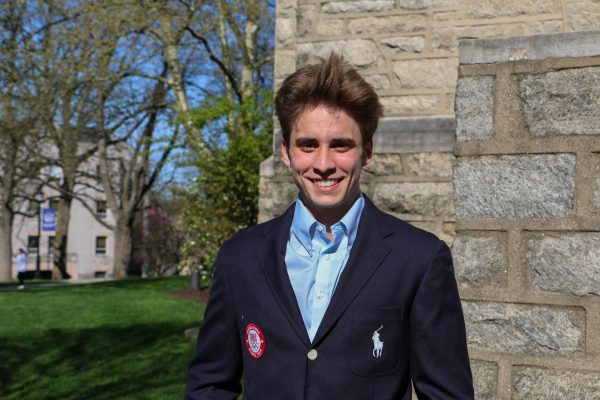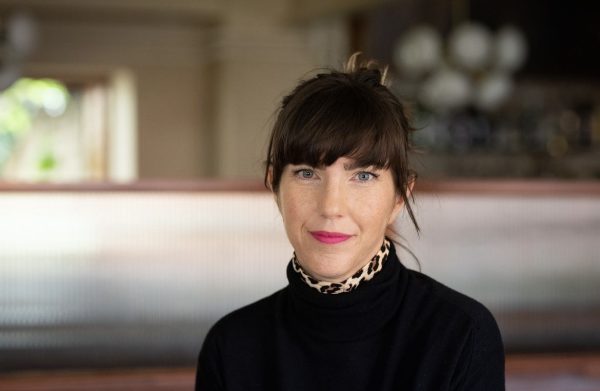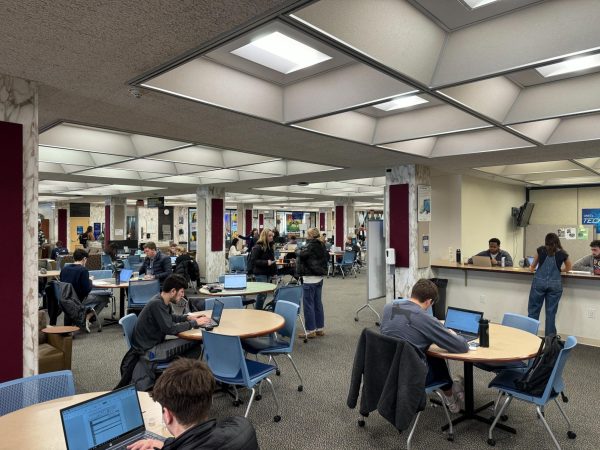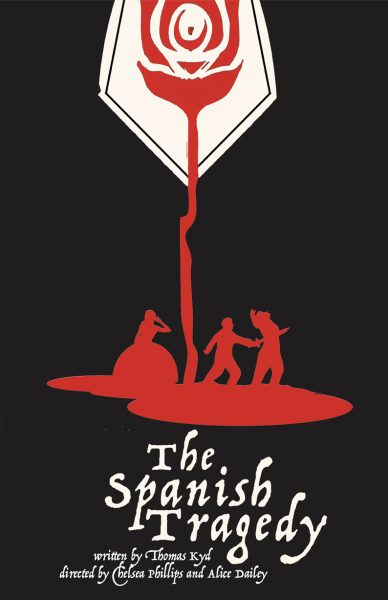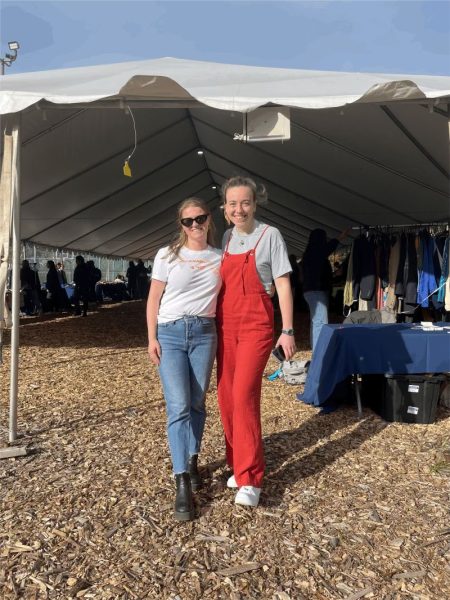Sustainability x Szumanski: A Candid Conversation About Sustainability in the Workforce
March 10, 2021
Kate Szumanski, Ph.D., serves as the Director of Professional Development at the University and works in the Office for Undergraduate Students for the College of Liberal Arts and Sciences. She earned her B.A. in History and Political Science and M.A. in History at Villanova, and she earned her M.S. in Journalism at Columbia University. At the University, Szumanski teaches a new class about careers in sustainability and environmental justice, called ASPD 2025.
The Villanovan’s writers Katherine Melbert, Emma Olson, Caleb Magoola, Kaitlyn Pinedo and Matt Metinko spoke with Szumanski about the course and her perspective on sustainability.
TV: How do you approach sustainability on the day to day?
KS: While I am no expert in the science of climate change, I pride myself in being a caring member of both my neighborhood community and the globe as whole. I strive to be a better, more informed citizen at the local and global levels, especially related to sustainability. I look to our politicians when considering practical ways to incorporate sustainability in our society. There are concrete ways that sustainability translates into jobs, internships, even care for the community. Sustainability does not have to be a career path; it can become a part of your day to day life. In my personal life, I always seek out more information to become more diligent in my sustainable efforts. We have installed solar panels in our home, as well as a smart thermostat to conserve energy. I never leave the house without a reusable water bottle and reusable bags. I have a passion for gardening and plant life. I fell in love with public transportation in my younger years; while the suburbs are not always conducive to public transport, my husband and I drive a Prius and 10-year old Toyota Sienna, respectively. I believe it is my responsibility to share my current wisdom and passions for nature with my children, students, friends and colleagues.
TV: What kind of careers are available to those with an Environmental Science Degree?
KS: Students who major in environmental science have a world of career possibilities at their fingertips. The renewable energy sector has seen a steady increase in jobs over the past decade and is projected to further expand as the nation moves further towards total renewable and cleaner energy. Additionally, the activism and legal side of environmental science careers is multi-faceted, numerous and bright. At Villanova, students have access to Handshake, our career management system, as well as the Office of Sustainability to seek opportunities to expand their network and experience. Part of my work as professor of ASPD [Arts and Sciences Professional Development] is to invite alumni and working professionals with a diverse range of sustainability-focused career paths so students can see how far an environmental science degree can take them. From environmental engineering to environmental justice to environmental consulting, the student demand for careers in sustainability is just as high as the workforce’s demand for careers in sustainability.
TV: What led you to create the sustainability-focused ASPD course?
KS: Over the last few years, I have observed a growing interest among students about pursuing careers in environmental studies. I wanted to bring these like-minded students together to discover these amazing opportunities in a field they are genuinely passionate about. I wondered how best I could meet this demand, how I could reach out to those well-established in the field of sustainability. Now, for the inaugural semester of this ASPD class, I have invited a wide variety of accomplished alumni and well-seasoned environmental professionals, hoping to inspire Villanova’s young professionals. We have weekly guests who speak about their respective journeys, and students have the chance to ask questions, receive crucial advice and connect with the guests on LinkedIn. I would encourage any Villanova student interested in a career in sustainability to take ASPD 2025. The impact of climate change is far too important to ignore. All Villanova students are motivated and encouraged to ignite change on this planet, and they all have the potential to make a long-term positive impact. My job with this ASPD course is to facilitate that and get my students where they seek to go.
TV: How have you seen sustainability in the workforce shift during your professional career?
KS: Over the last decade, I have witnessed a big transition from paper to a more digital presence. As workers, we have adopted a greater awareness of waste and how to curtail that. This idea is primarily demonstrated through mindful printing. There is no need to waste reams of paper when a shared Google doc would suffice. In the past, administrative assistants would even print out their boss’s emails. We would never even think to do that today. Not to mention that the pandemic has greatly accelerated these sustainable waste habits. At the end of the day, these small, sensible choices in the workplace can lead to a big environmental impact.
TV: Is there value in working at both sustainable and sustainably corrupt companies?
KS: When I am advising students interested in a career in sustainability, I would not necessarily encourage them to work for a sustainably corrupt company. While there is no perfect organization, and we are all on a journey of sustainability, a student needs to consider the questions: How sustainable is the company? Does the company seek to enhance their sustainability? Can I be a part of that change? If a company is bankrupt in sustainable practices, the student and this company simply have incompatible value systems. The optimistic student can soon become a frustrated employee working in a sustainably corrupt organization. So yes, I would caution any sustainability-minded student in pursuing a job at a corrupt company.






